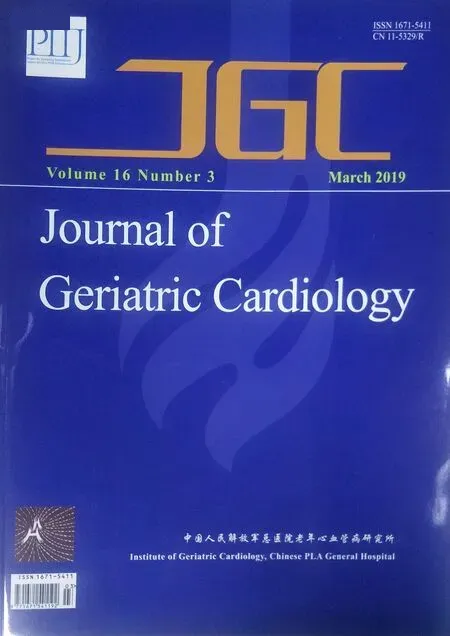Importance must be attached to correcting unhealthy lifestyles in prevention and control of hypertension
Zhao-Su WU*
Department of Epidemiology, Beijing Anzhen Hospital, Andingmenwai, Beijing 100029, China
Keywords: Hypertension treatment; Lifestyle modification; Unhealthy lifestyles
On the macro level, the ‘2018 Chinese Guidelines for Prevention and Treatment of Hypertension’[1]provides a detailed overview on the population strategies for hypertension prevention as well as the principles and methods of community standardized management for hypertension control, with particular emphasis on the significance of correcting unhealthy lifestyles for the prevention and control of hypertension and its complications.
Over the past 100 years, research on the pathogenesis of hypertension has revealed that the occurrence of human hypertension is the result of interaction between internal factors (physiological functions and gene regulation) and external factors (various risk factors contributing to elevated blood pressure). The results of natural history study on hypertension have indicated that hypertension is not an inevitable consequence of aging. For example, some blood pressure studies of primitive tribal populations isolated from modern society (characterized by peaceful life, vegetarian-based diet, without tobacco smoking/alcohol drinking habits and with plenty of physical activity) did not find a positive relationship between blood pressure and age. These studies also found that with the lifestyle transition from primitivity to modernization, urbanization and automation,hypertension had become a lingering shadow of human society. The result is that elevated blood pressure eventually leads to lesions in the heart, brain and kidney which impair patients’ health and longevity. The reason behind this is that the economic progress and improvement of human lives often accompany with unhealthy lifestyles, including unhealthy diet, smoking and excessive alcohol consumption,work and mental stress and lack of physical activity.
Many prospective epidemiological studies have also demonstrated that the adoption of a healthy lifestyle from childhood or adolescence can effectively halt or delay the onset of hypertension in the later life. Lifestyle modification can effectively lower blood pressure in patients with hypertension (Table 1). Although scientific research continuously demonstrates the importance of healthy lifestyle for maintaining normal blood pressure and many national guidelines have lifestyle modification as the “first” recommendation for the prevention and treatment of hypertension, clinicians still do not pay enough attention to persuading and guiding patients to correct their bad habits. The reasons are manifold.The chief reason is that changing living habits is difficult,and it does not work overnight. If the patient does not comply with the doctor’s advice, the doctor will easily make a judgment that “correcting unhealthy lifestyle is not effective”. That is one of the reasons why “the more hypertension is treated; the more hypertensive patients are found”.Nevertheless, over the past half century, many large-scale health education activities for prevention and control of chronic diseases in China have been carried out under the guidance of the “prevention-oriented” policy, which aimed at improving people’s unhealthy living behaviors. One of such activities is the nationwide smoking control education program which involves all walks of life. Other successful activities are the National Fitness Program, the National Health and Nutrition Program (focusing on lowering salt and saturated fat intake, increasing fruits and vegetables intake), etc. All these abovementioned programs have achieved remarkable results.
In conclusion, every clinical worker engaged in the pre- vention and control of hypertension must be fully aware of the value of maintaining a healthy lifestyle for the prevention and treatment of hypertension, and should evaluate whether each hypertensive patient has an unhealthy lifestyle.It is not wise to make easily a conclusion that the effect of correcting unhealthy behavior on the patient is not significant, and thus give it up. In many cases, the ineffectiveness is due to inadequate correction or imperfect methods. However, hypertensive patients who have been rigorously observed to be ineffective in blood pressure control through lifestyle modification should waste no time be given medications as specified in the guidelines. Even if so, in those patients treated with drugs it is necessary to adhere to improving lifestyle at the same time, as studies have shown that lifestyle modification is not only the best cost-effective treatment, but also an effective measure to improve patients'self-care awareness. Besides, it also can increase antihypertensive agents’ effect.

Table 1. The antihypertensive effect of lifestyle modification.
 Journal of Geriatric Cardiology2019年3期
Journal of Geriatric Cardiology2019年3期
- Journal of Geriatric Cardiology的其它文章
- 2018 Chinese Guidelines for Prevention and Treatment of Hypertension—A report of the Revision Committee of Chinese Guidelines for Prevention and Treatment of Hypertension
- Why is the Chinese hypertension guideline necessary?
- Intensified, optimized and standardized management of Chinese patients with hypertension: Comments on “2018 Chinese Guidelines for Prevention and Treatment of Hypertension”
